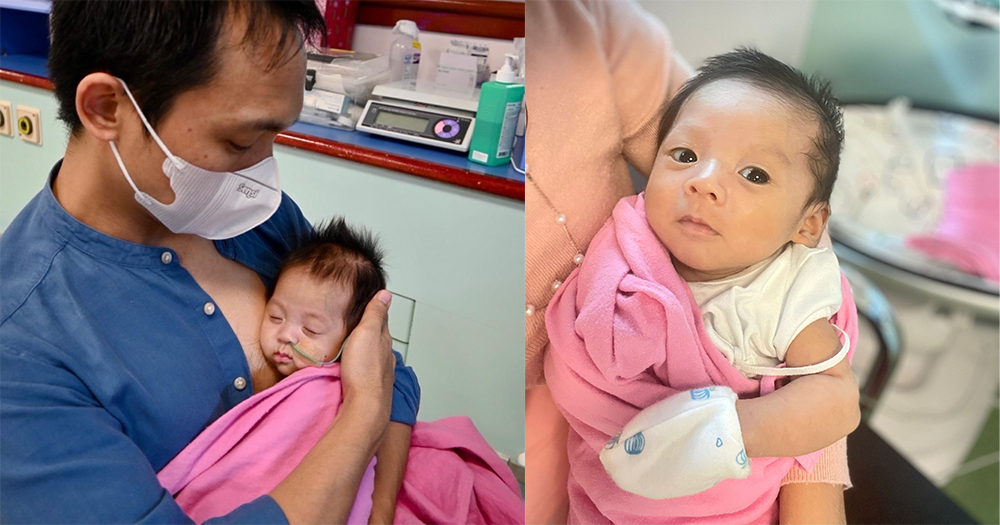Follow us on Telegram for the latest updates: https://t.me/mothershipsg
For most parents, the birth of a child is a beautiful experience.
But for Candy Sutedja and Wu Boyan, the arrival of their son, Riley, was one fraught with anxiety and fear.
That's because Riley was born premature — nearly a month before his expected delivery date.
In Singapore, about 10 per cent of babies are born premature.
This puts them at risk of a number of complications, as their bodies may not be sufficiently developed for life outside the womb.
"Other than their size and weight being smaller than full-term babies, they have less muscle and fat, and they may have problems maintaining their temperature or sugar levels," said Quek Bin Huey, a senior consultant at the Neonatal Intensive Care Unit at KK Women's and Children's Hospital (KKH).
Their lungs may not be fully mature, she explained, and they may need breathing support.
In addition, their immune systems may not be well-developed, leaving them at risk of infections. "These are just some of the problems that premature babies face," she added.
Sutedja told Mothership it felt like they "were thrown into an unknown world".
"We prayed hard and believed that Riley, being the fighter that he is, would pull through."
Kangaroo care
You'd never know Riley's ordeal by looking at him now. Today, he is a healthy and strong infant, known in the wards as the "very loud" baby.
He's not alone, either. Thanks to better obstetric care today, the prognosis for prematurity is good: at KKH, there is a 90 per cent survival rate, with most babies going on to live normal lives.
One element of the care that Riley received is known as kangaroo care.
In principle, it's a simple enough concept. Kangaroo care involves snuggling an unclothed baby to the parent's bare chest, within the "pouch" of the parent's clothing — kind of like a kangaroo.
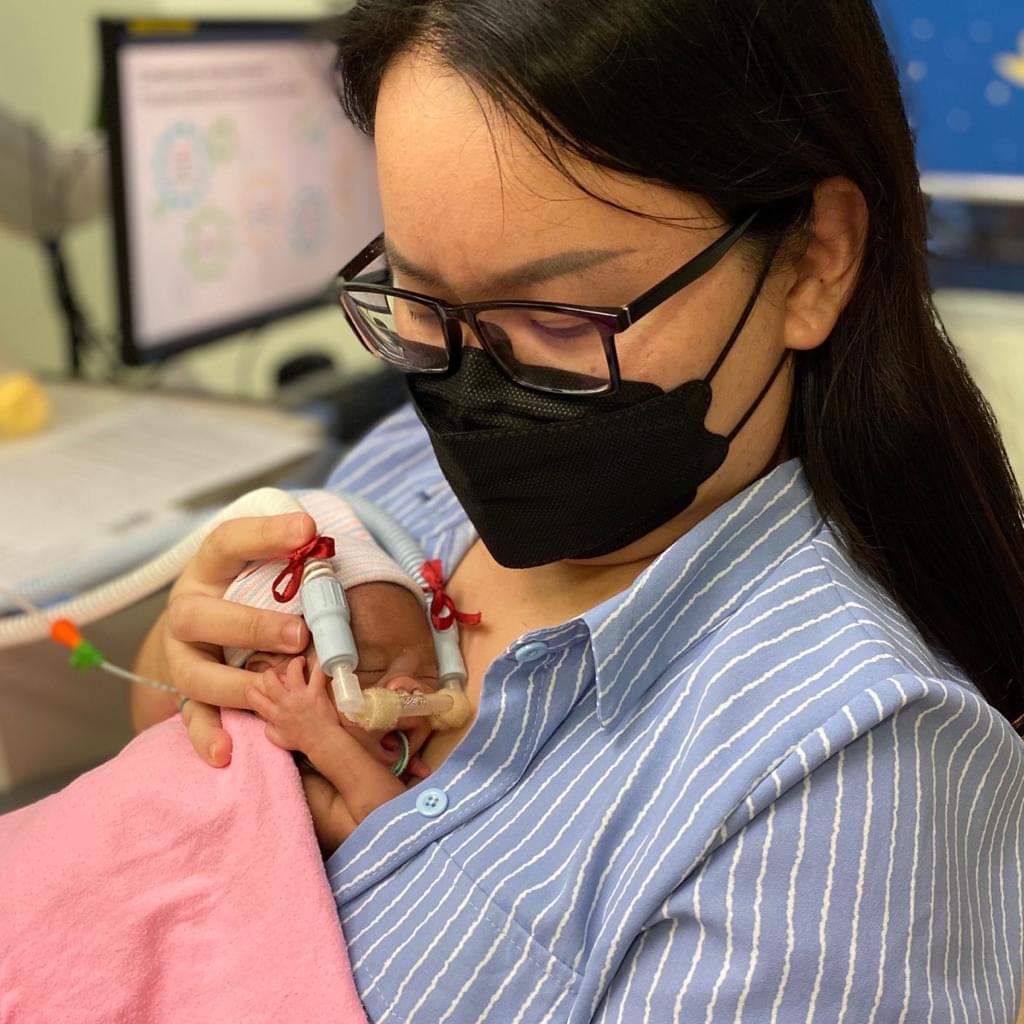 Photo from KKH/FB.
Photo from KKH/FB.
But Quek emphasised that while simple, it is a powerful therapy that goes a long way.
Its benefits include improving the baby's motor and social skills, enhancing the mother's breast milk supply, and strengthening the bond between parent and child.
"Other studies also showed that kangaroo care helped stabilise heart and respiratory rates, improved oxygen saturation rates, better regulated an infant’s body temperature, and improved growth," she added.
It can also be done for babies who are intubated or on non-invasive ventilation — as long as they're in stable condition, Quek said.
Not just for mothers
While it may seem more instinctive for mothers to engage in this therapy, fathers can participate too, Quek said.
For instance, in Riley's case, his father was an active participant in kangaroo care.
Here are a few pics:
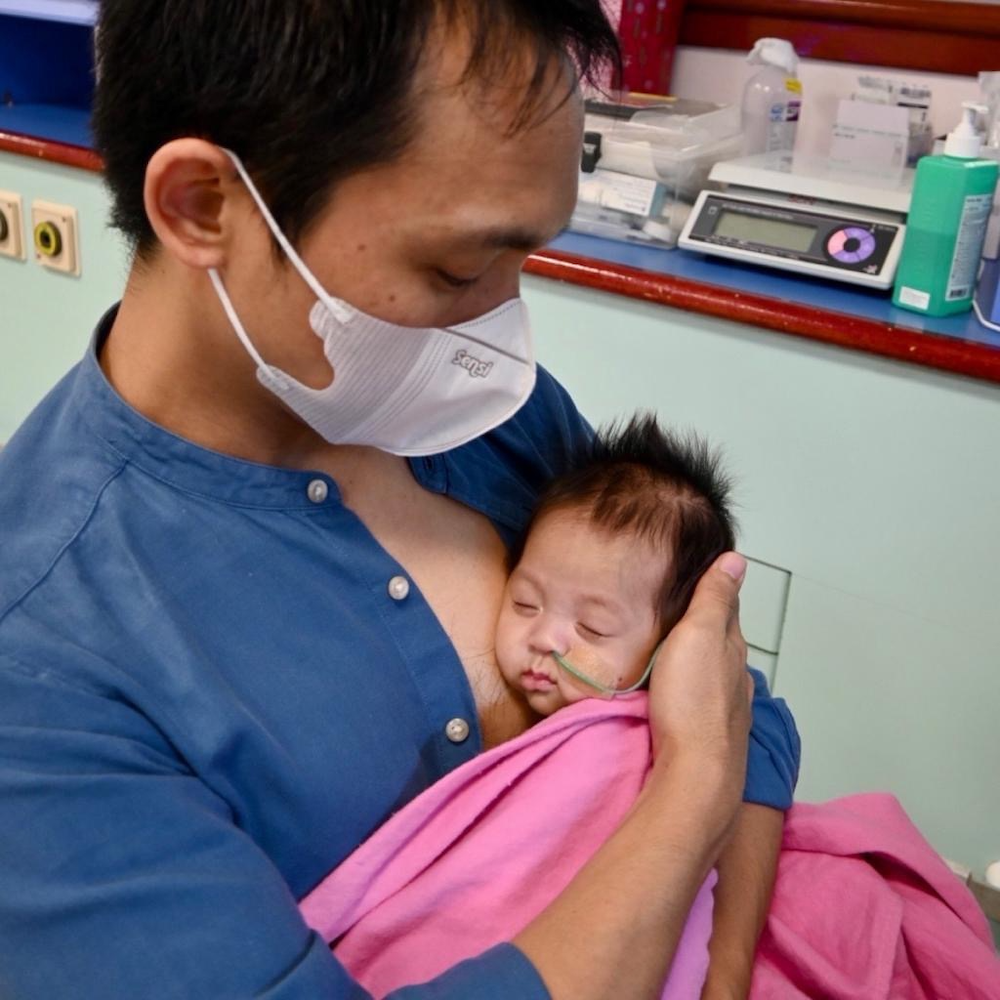 Photo courtesy of KKH.
Photo courtesy of KKH.
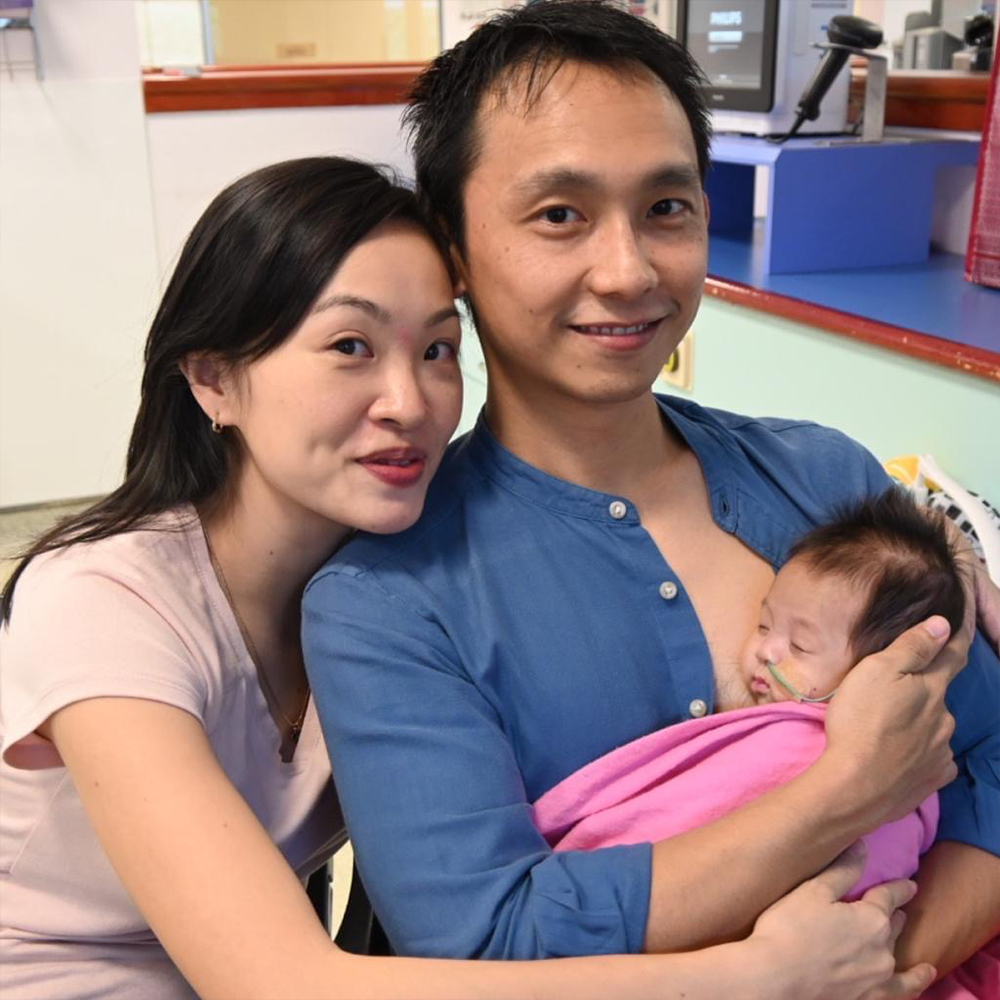 Photo courtesy of KKH.
Photo courtesy of KKH.
"As I am not much of a talker, kangaroo care is a great alternative for me to provide Riley with security and comfort through touch instead of words," he said.
Sutedja added that her son was blessed to have a father who "never fails to shower his children with love and attention in his own way".
Thanks to the active participation of both parents, Riley emerged as the winner of KKH's Care-a-Ton — an initiative encouraging parents of preterm babies to clock in their kangaroo care time — with a whopping 48 hours in two weeks, more than double last year's record.
And here's Riley today, two months later:
 Photo courtesy of Candy Sutedja.
Photo courtesy of Candy Sutedja.
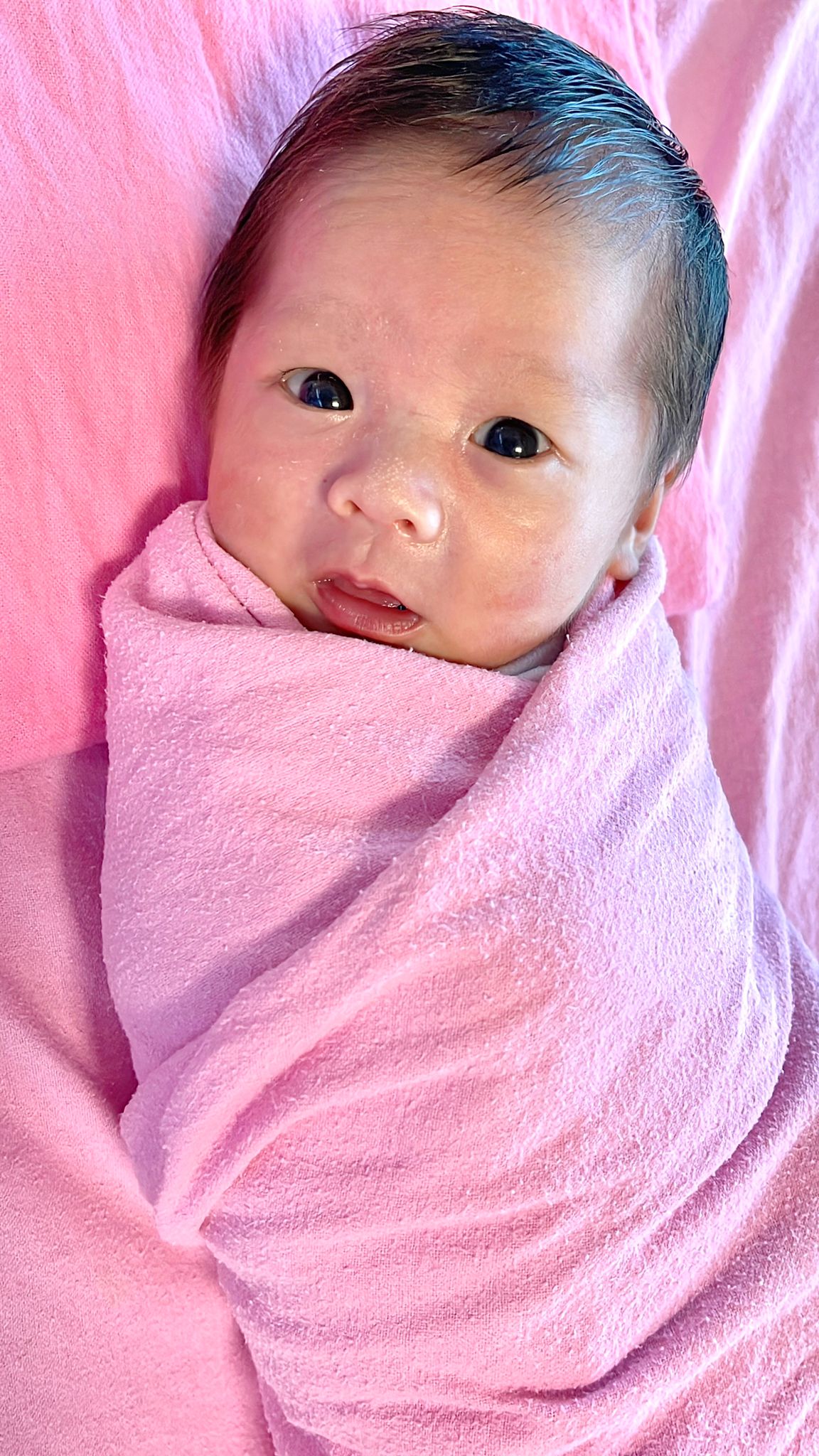 Photo courtesy of Candy Sutedja.
Photo courtesy of Candy Sutedja.
Awww.
How to start kangaroo care
Kangaroo care isn't just for newborns; full-term babies can benefit from it, too.
If you're interested to try kangaroo care for yourself, here are some tips from Quek:
- Avoid strong odours such as perfume or cigarette smoke, as these can irritate the baby or affect their breathing.
- Parents can wear shirts that open at the front, while the baby should be clad in just a diaper.
- Place the baby in an upright position against your bare chest. The baby's face should be turned to one side (make sure that their airways are open!)
- Cover the baby's back with a blanket.
Parents are advised to hold their baby in this position for at least an hour.
Top image from KKH
If you like what you read, follow us on Facebook, Instagram, Twitter and Telegram to get the latest updates.
